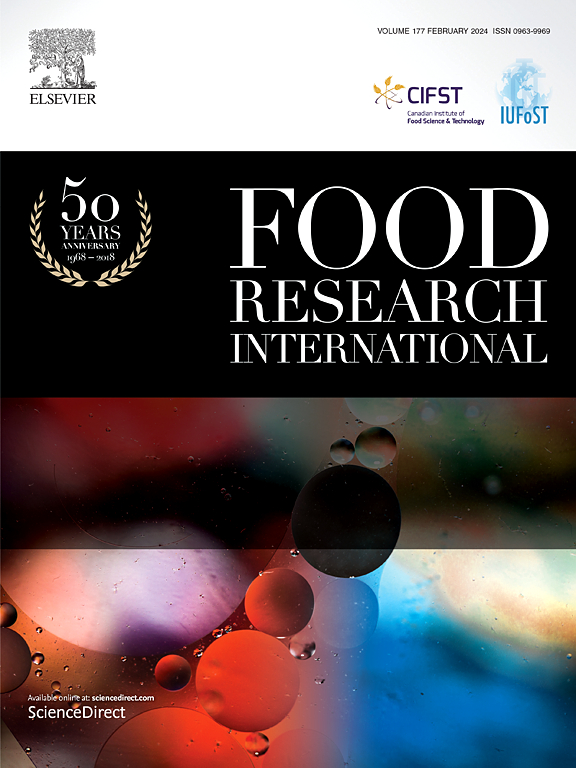Virtual screening and characterization of novel myogenic peptides from bovine collagen hydrolysates: Targeting myomaker
IF 7
1区 农林科学
Q1 FOOD SCIENCE & TECHNOLOGY
引用次数: 0
Abstract
The increasing prevalence of muscle aging, exacerbated by an aging population, poses a significant threat to public health, necessitating the development of more effective interventions. This study primarily aimed to elucidate the mechanism by which bovine bone collagen facilitates muscle differentiation and regeneration. Initially, peptide sequences within bovine bone collagen hydrolysate were identified using peptidomics. Molecular docking and dynamics simulations subsequently demonstrated that the peptide AGPPGPPGPAGK could form a stable complex with Myomaker, suggesting its potential to regulate myoblast differentiation by targeting Myomaker. The physicochemical properties of AGPPGPPGPAGK were predicted using various deep learning tools, providing insight into its functional capabilities. Further molecular and cellular experiments confirmed that the peptide could enhance myoblast differentiation by regulating energy metabolism. Transcriptome analysis further supported these findings, revealing that the peptide modulated energy metabolism during myoblast differentiation. Finally, a combined bioinformatic and transcriptomic analysis indicated a potential regulatory role of Hrh1 in energy metabolism during cell differentiation, a finding that warrants further investigation.

求助全文
约1分钟内获得全文
求助全文
来源期刊

Food Research International
工程技术-食品科技
CiteScore
12.50
自引率
7.40%
发文量
1183
审稿时长
79 days
期刊介绍:
Food Research International serves as a rapid dissemination platform for significant and impactful research in food science, technology, engineering, and nutrition. The journal focuses on publishing novel, high-quality, and high-impact review papers, original research papers, and letters to the editors across various disciplines in the science and technology of food. Additionally, it follows a policy of publishing special issues on topical and emergent subjects in food research or related areas. Selected, peer-reviewed papers from scientific meetings, workshops, and conferences on the science, technology, and engineering of foods are also featured in special issues.
 求助内容:
求助内容: 应助结果提醒方式:
应助结果提醒方式:


